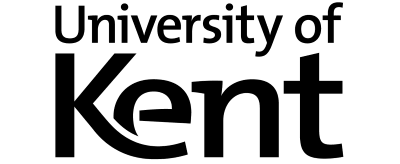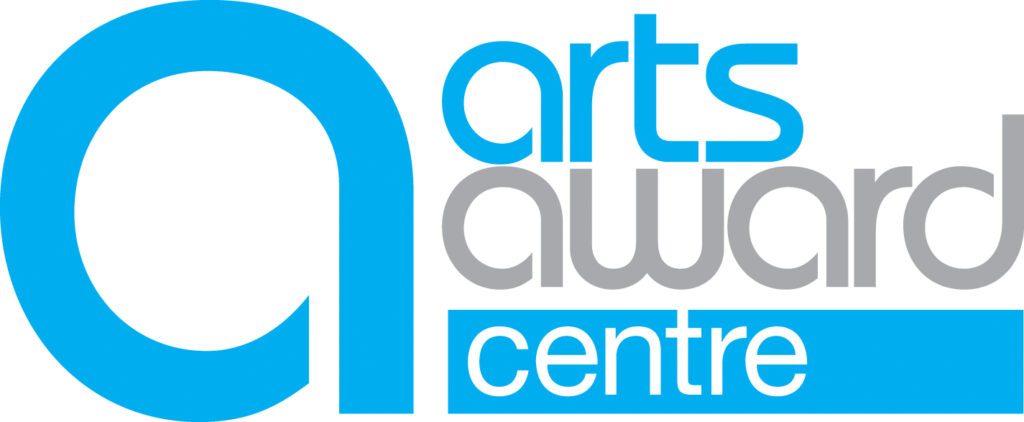Undergraduate Applications, Auditions & Life At NSCD
The application fee is a one-off fee of £20 and covers the cost of processing applications and auditions. Application fee waivers are also available to applicants from low-income households (under £25,000 annual household income). Applicants who meet the criteria for a fee waiver will be contacted by Admissions with a fee waiver code once their application has been submitted to use when booking their audition.
No, NSCD does not operate as part of UCAS. All applications are made direct via our website and please refer to our How to Apply pages for all necessary information on applying.
Entry to our undergraduate courses is through successful audition and interview. Additionally, candidates should normally have gained five GCSE passes (grade C/4 or above) which must include English Language, and two A Level passes or a L3 BTEC National diploma or professional/vocational training at an appropriate level.
Exceptions are made for 17 year-olds who are offered a place on the degree course, who would therefore not have completed A Levels or a full diploma etc. Equivalent qualifications may also be accepted depending on the strength of the grades achieved. Equivalent level overseas qualifications are also accepted. In some cases, applicants who do not have the standard entry requirements will be required to complete the School Matriculation Task as part of their entry requirements.
There are no specific requirements in terms of dance training; some applicants have extensive training in a range of styles, whilst some applicants have only been dancing for a relatively short amount of time.
Each year we receive hundreds of applications across our Undergraduate courses. There are 60 places available on our BA course and 30-35 places on our CertHE.
Yes, can let us know that you wish to be considered for either direct second or third year entry. The Admissions Team will make note of this on the audition documentation and the panel will consider accordingly. Please note, BA2 and BA3 direct entry places are limited so places are offered based on availability and suitability. The panel’s decision is final.
NSCD CertHE students do not automatically obtain a place on our BA and must follow the same application and audition process as external applicants. Tutors will help prepare students for further in-depth study, either at NSCD or elsewhere and will hold a mock audition. Many of our CertHE students apply and are successful in obtaining a place on the BA, but this is not guaranteed and depends on suitability and readiness, as well as their performance in the audition alongside all other candidates.
We aim to let all candidates know the outcome of their audition within 2 to 3 weeks.
We provide candidates three weeks in which to make a decision if successful in receiving an offer. In order to maintain a fair process and to effectively manage offers and outcomes, we only allow extensions in particular circumstances. We do not allow extensions so candidates can consider offers from other institutions, but of course appreciate your circumstances.
NSCD receives much more applications than the places on the course and therefore there are some candidates who the panel would make an offer to but due to places available can’t offer at that time. Therefore being placed on the Shortlist means that you may be offered a place in the months following your audition, if a place becomes available. It is hard for us to predict when and if a place might become available. Admissions will check in as regularly as possible to keep shortlisted candidates informed.
To note, NSCD applies a holistic approach when selecting from the shortlist, what is considered as Contextual Admissions. This means that other factors may be considered alongside an audition profile, such as if a candidate is classed as a Widening Participation student.
Typically we do not allow for deferrals due to the highly practical nature and intensity of the courses. Therefore we would ask that you reapply the following year.
Applications should be submitted by the deadline as stated on the course pages. Applications received after this date may be considered dependent on the course applied for however this is not guaranteed so candidates should ensure we receive their application before the deadline.
Details of financial support options for Undergraduate students, both Home and Overseas, can be found here: Bursaries & Financial Assistance
The application form for financial assistance can be found on the above webpage, along with details regarding the deadline. Ensure you apply for the correct academic year.
Eligible Home and EU Settled or Pre-Settled students can apply for funding through Student Finance England (or Scotland, Wales and Northern Ireland): Apply online for student finance – GOV.UK (www.gov.uk).
Student Finance applications usually open in March. For further information on Fees, Student Finance and Costs please see here: Fees & Finance
Places on all our courses are offered after successful application and audition or interview. All our offers are conditional upon receipt of the relevant Academic and English Language entry requirements for the specific course. We would issue a CAS once we have received all entry requirements.
If your first language is not English you will need meet the minimum English language entry requirements in order to enrol on any of our courses. This is set at CEFR level B2 for undergraduate courses and high B2 or C1 for postgraduate courses.
This usually means passing a Secure English Language Test (SELT) from an approved provider; IELTS for UKVI, LanguageCert International ESOL SELT or PTE Academic UKVI.
However as NSCD is a Higher Education Provider (HEP) we can assess your level of English through an alternative qualification providing it meets the required level.
To enrol on an undergraduate course your English language qualification must be equivalent to the examples below:
IELTS for UKVI with an overall band of 5.5 with no less than 5.0 in each component skill.
LanguageCert International ESOL SELT with 33 – 38 score per skill.
Who does not need to prove their knowledge of English?
- You do not need to prove your knowledge of English if you’ve completed a qualification equivalent to a UK degree in one of the following countries, or are from one of the following countries: Antigua and Barbuda, Australia, the Bahamas, Barbados, Belize, Canada, Dominica, Grenada, Guyana, Ireland, Jamaica, Malta, New Zealand, St Kitts and Nevis, St Lucia, St Vincent and the Grenadines, Trinidad and Tobago, UK, USA.
- You also do not need to prove your knowledge of English if you proved your level of English in a previous visa application.
- In certain countries English subjects studied at school are comparable to B2 standard, provided these subjects have been taken and successfully passed in the final examinations with the required grades where stated. If you are offered a conditional place, after your audition, qualifications that you have gained, including grades that you believe are comparable to the B2 level should be submitted to the admissions team for them to check with NARIC (The National Recognition Information Centre). You will then be notified whether you are exempt from taking additional English language tests for entry. Equally, if you studied/are studying recognised qualifications in English at an International School, or took a GCSE English as a first or second language, you may be exempt.
Most Overseas students will require a Student Route Visa. See further details here: Overseas Students – Northern School of Contemporary Dance (nscd.ac.uk)
There is no such thing as a typical week at NSCD. It is challenging to give exact timetables as different projects result in variations. In addition to the modules there are sessions which support fitness, music, active rest, somatic practice and other important skills and ideas for students to draw into their ongoing practice.
BA (Hons) Dance (Contemporary)
Timetables: Timetables vary relative to the modular structure of the course but on average BA1 students engage with 3-4 taught 1.5 hour sessions per day, with an expectation of additional independent practice. Individual (or shared) studio space can be booked in addition to support training. In BA1 students engage with various contemporary practices (4 classes per week) including release based, hybrid practices, floor work and more traditional styles e.g. Cunningham/Graham based classes. In addition, they typically train in 3 ballet classes per week, and additional complementary practices rotate throughout the year, such as Afro-Fusion, Breaking, yoga, Pilates, partner-work, improvisation, body-mind learning/experiential anatomy and others.
In term 1 students engage with 3 modules:
- Dance Practice 1 – 4 contemporary & 3 ballet, plus complementary practices which might include: 1 body-mind learning/experiential anatomy, 1 yoga, 1 Pilates
- Creative Practice 1 – 2 sessions in choreography/composition per week, plus 1 session in improvisation for movement generation
- Research Practice 1 – 1 session per week studio-based practical work, plus 1 session seminar based ‘theory’ lecture
Term 2:
- Dance Practices 2 – as above with Dance Practice 2, plus rotation of complimentary practices such as Afro-fusion/Breaking, partner work
- Creative Practice 1 – working towards assessment
- Research Practice 1 – working towards assessment
- Performance in Context 1 – group creation/rehearsal/performance period (comprising of daily warm-up class followed by rehearsal all day)
Term 3:
- Dance Practices 2 – as above
- Performance in Context 1 – 4 sessions per week with site/film focus, working towards performance
- Teaching Dance 1 – 2 sessions per week
CertHE Dance Timetables
Timetables vary relative to the modular structure of the course but on average Cert HE students engage with up to 3 taught 1.5 hour sessions per day, with an expectation of additional independent practice. Individual (or shared) studio space can be booked in addition to support training. On this course (dependent on the chosen pathway) students engage with various dance practices classes, including Contemporary, Afro-fusion, Breaking, Ballet, Hip-Hop/House. In addition, complementary practices rotate to build additional skills through yoga, Pilates, partner-work, improvisation and others.
In term 1 students engage with 3 modules:
- Dance Practices: Foundations of Movement
Contemporary Pathway:
4 contemporary, 3 ballet, 1 x Improvisation, 1 x Yoga, 1 x Afro Fusion
Street Dance Styles Pathway:
2 x Afro Fusion, 2 x Breaking, 2 x Hip Hop/House, 1 contemporary, 1 ballet, 1 x Improvisation, 1 x Yoga
- Research Practice: Cultural Perspectives on Dance
2 x sessions (1 x practical & 1 x seminar based)
- Creative Practice: Choreography & Composition
2 x sessions
Term 2:
- Dance Practices: Diverse Movement Forms
As with term 1 but with rotation of complementary practices
- Research Practice: Cultural Perspectives on Dance
2 x sessions (1 x practical & 1 x seminar based)
- Creative Practice: Choreography & Composition
2 x sessions
Term 3:
- Dance Practices: Diverse Movement Forms
As with term 1&2 but with rotation of complementary practices
- Dance Repertoire
4 x session per week, plus independent study for rehearsing chosen rep
- Performance Practice
Final half term spent in intensive rehearsal period (4 days per week) working towards group performance for graduation
NSCD employs a wide variety of assessment methods including formative, continuous and summative assessment.
Assessment evidence is collected through:
- Continuous and summative assessments in technique modules
- Assessed rehearsal processes
- Showings of performance, choreographic work, improvisation & movement research
Students receive ongoing feedback in practical classes and through the tutorial system in which professional and academic development are considered and evaluated.
Our counselling service is free and confidential (unless a student is at risk), and is available for all students to access. The first step is to book an appointment with our dedicated Student Support Manager, who can assess immediate needs and discuss options for ongoing support.
From there, it is then decided what level of support feels right. For example, we could offer:
- Weekly counselling via our team of Student counsellors (or external referrals where required);
- Groups and workshops covering a range of common student mental health issues
- Adhoc support and advice appointments as and when you need.
Waiting times are always considerably lower than NHS referrals and our services are free to all students.
See further details on services available to students here: Student Services – Northern School of Contemporary Dance (nscd.ac.uk)
Most NSCD students live in shared housing close to the school, some opt for halls of residence in the city centre or a little further away from the school. See info here: Accommodation – Northern School of Contemporary Dance (nscd.ac.uk)







